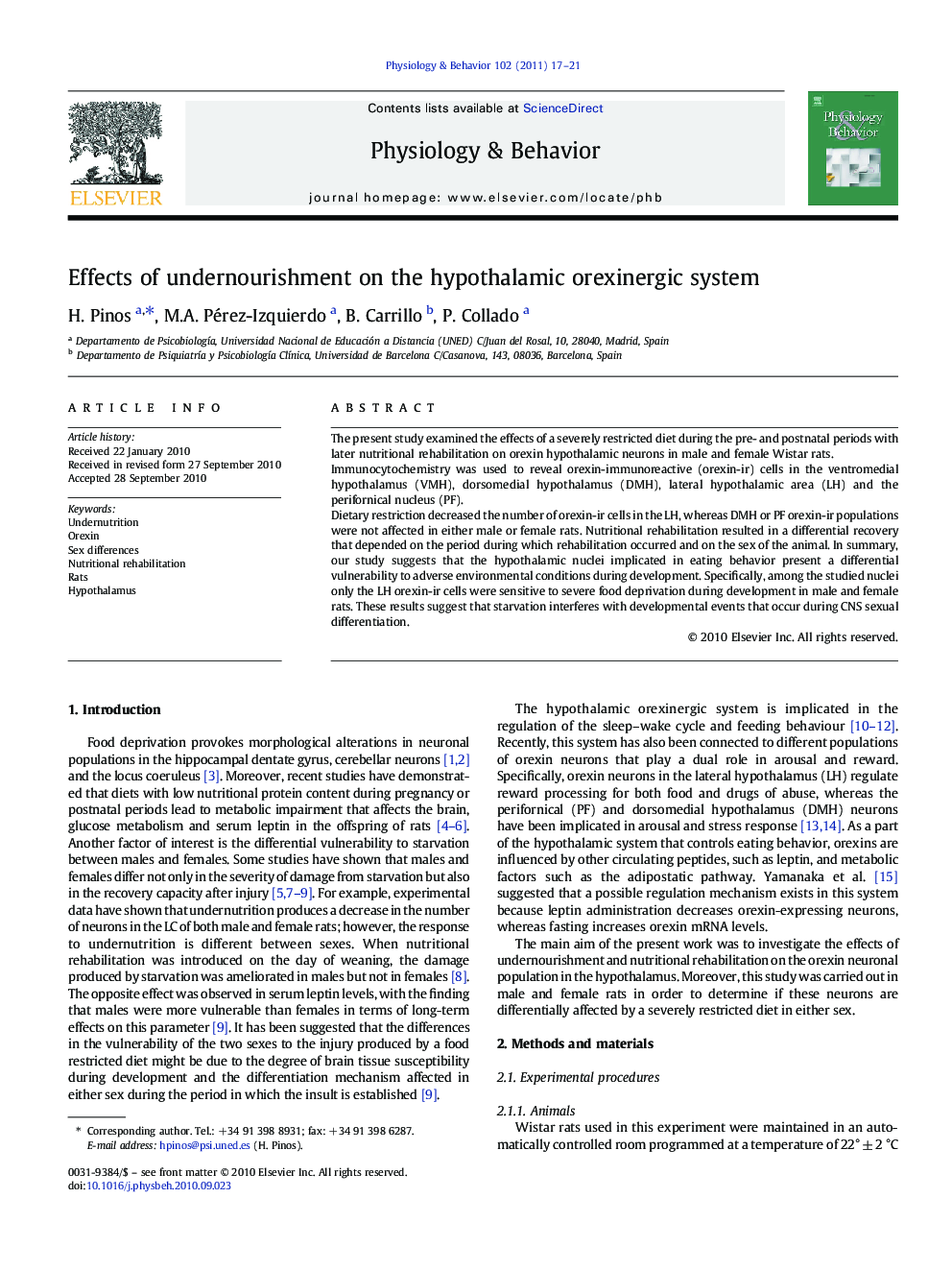| Article ID | Journal | Published Year | Pages | File Type |
|---|---|---|---|---|
| 2844867 | Physiology & Behavior | 2011 | 5 Pages |
The present study examined the effects of a severely restricted diet during the pre- and postnatal periods with later nutritional rehabilitation on orexin hypothalamic neurons in male and female Wistar rats.Immunocytochemistry was used to reveal orexin-immunoreactive (orexin-ir) cells in the ventromedial hypothalamus (VMH), dorsomedial hypothalamus (DMH), lateral hypothalamic area (LH) and the perifornical nucleus (PF).Dietary restriction decreased the number of orexin-ir cells in the LH, whereas DMH or PF orexin-ir populations were not affected in either male or female rats. Nutritional rehabilitation resulted in a differential recovery that depended on the period during which rehabilitation occurred and on the sex of the animal. In summary, our study suggests that the hypothalamic nuclei implicated in eating behavior present a differential vulnerability to adverse environmental conditions during development. Specifically, among the studied nuclei only the LH orexin-ir cells were sensitive to severe food deprivation during development in male and female rats. These results suggest that starvation interferes with developmental events that occur during CNS sexual differentiation.
Research Highlights►Dietary restriction produced a decreased in number of orexin-ir cells in LH in rats. ►DMH or PF orexin-ir populations were not affected by dietary restriction. ►Nutritional rehabilitation showed a differential recovery effect in males and females. ►Males do not recover orexin-ir cells when rehabilitation is implemented at day 12.
